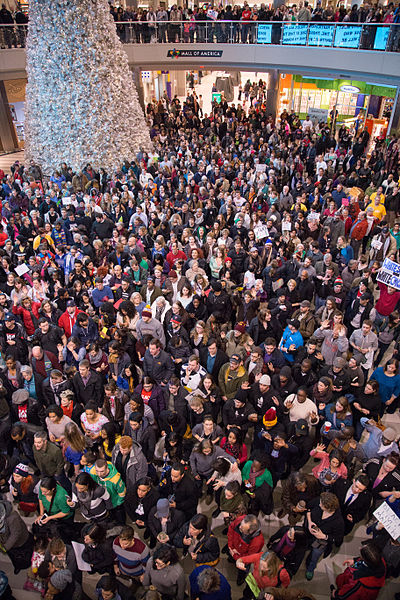
Image by Nicholas Upton [CC BY-SA 2.0 (http://creativecommons.org/licenses/by-sa/2.0)], via Wikimedia Commons.
The great prize for most white people (although some of them have a lot more of it than others) is white privilege—what Peggy McIntosh identifies as “an invisible package of unearned assets that I can count on cashing in each day….”
Dr. McIntosh sees the resistance of most white people to the very idea of white privilege as similar to the resistance of many men to the suggestion that they have an advantage over women solely because of their sex, not because of any inherent superiority.
McIntosh shares her own journey to awareness of white privilege: “I began to count the ways in which I enjoy unearned skin privilege and have been conditioned into oblivion about its existence, unable to see that it put me ‘ahead’ in any way, or put my people ahead, overrewarding us and yet also paradoxically damaging us….”
To illustrate the advantages she can take for granted as a white person, she lists 46 privileges, including:
* “I can swear, or dress in secondhand clothes, or not answer letters, without having people attribute these choices to the bad morals, the poverty, or the illiteracy of my race.
* If a traffic cop pulls me over or if the IRS audits my tax return, I can be sure I haven’t been singled out because of my race.
* I can do well in a challenging situation without being called a credit to my race.”
No matter how good, honest, trustworthy, or deserving they may be, there are millions of people of color for whom these commonalities are not true, for no reasons other than the color of their skin and the racism degrading all of us.
Kathie Malley-Morrison, Professor of Psychology

